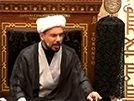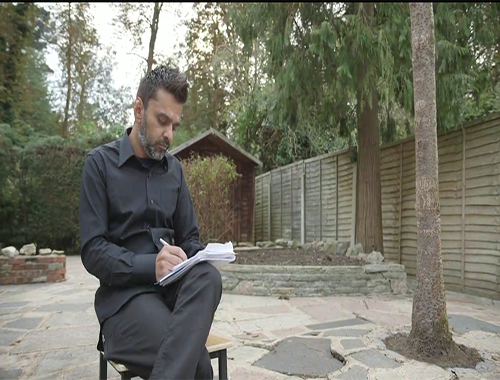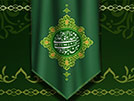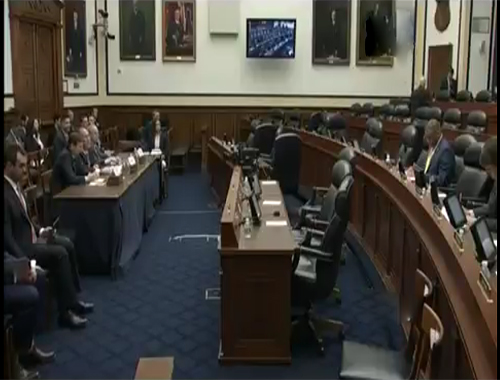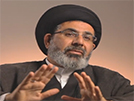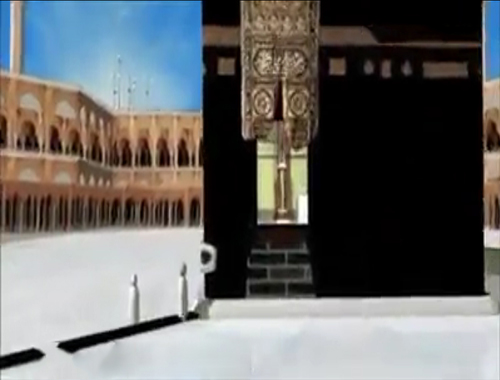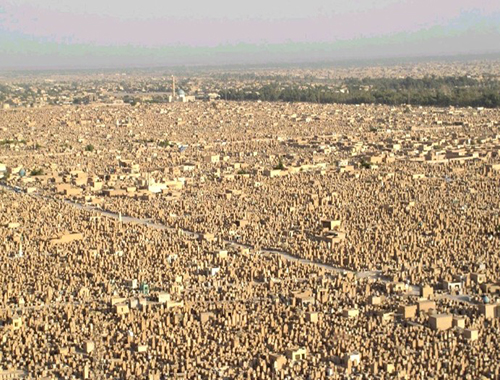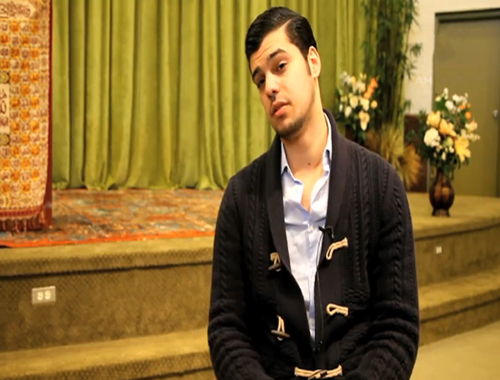Chapter 25-Social Classification
- Details
- Hits: 4119
Chapter 25
Social Classification
--------------------------------------------------------------------------------
Although society enjoys a sort of unity, from within it is divided into various groups and classes, which are sometimes incongruous. At least some societies are so. As society possibly has different and sometimes conflicting polarities, it may be said that it has both unity and plurality. According to the terminology of the Muslim philosophers, societies are governed by a specific sort of 'unity in plurality and plurality in unity'.
In the previous chapters we discussed the nature of the unity of society. Now we propose to take up the nature of its plurality.
In this connection there exist two well-known theories. The first one is based on historical materialism and dialectic contradiction. According to this theory, which we will elaborate later, the question of the unity and the plurality of society hinges on the principle of ownership. The societies in which private property does not exist, such as the primitive social society or the social societies that are likely to come into existence in future, are basically unipolar. But the societies, in which private property holds sway, are bipolar. As such society is either unipolar or bipolar, there being no third alternative. In a bipolar society all men are divided into two groups or classes, the exploiters and the exploited or the rulers and the ruled, there being no group or camp other than these two groups or camps. This division becomes applicable to all affairs of society, such as philosophy, ethics, religion and art. In other words, in a bipolar society there are two kinds of philosophy, two kinds of ethics, two kinds of religion and so on, each kind having a particular economic character. If in any case there prevails only one philosophy, one religion or one set of moral rules, that philosophy, religion or morality is always tinted with the colour of that class which has succeeded in imposing its colour on the other class as sometimes happens. There can exist no philosophy, art, religion or morality transcending the economic classes and having no class colour.
According to the other theory the unipolarity or multipolarity of society is not subject to the principle of private ownership. The cultural, social, racial and ideological factors also can make society multipolar. Especially cultural and ideological factors may play a basic role in dividing society into conflicting camps or making it unipolar even without the abolition of private property.
Now let us see what view is held by the Holy Qur'an in regard to the plurality of society. Does it or does it not accept its existence? If it does, does it hold that society is bipolar because of the existence of private property and exploitation or does it forward some other view?
It appears that the best way or at least a good way of ascertaining the Qur'anic point of view in this respect is to pick out the words having social connotation used in the Holy Qur'an and to see what they signify.
The words with social significance used in the Holy Qur'an are of two catagories: Some of them are related to only one social phenomenon. These words are such as Millah (community), Shari'ah (Divine law), Shir'an (law) Minhaj (way of life), Sunnah (traditions) etc. These words are outside the scope of our present discussion.
There are other words which serve as a social designation of all or several groups of men. It is by means of these words that we can determine the viewpoint of the Holy Qur'an. Such words are: Qawm (people), Ummah (community), Nads (men), Shu'ub (nations) Qaba'il (tribes), Rasul (messenger of Allah), Nabi (Prophet), Imam (leader), Wali (guardian), Mu'min (believer), Kafir (unbeliever), Munafiq (hypocrite), Mushrik (polytheist), Muzabzab (wavering), Muhajir (emigrant), Mujahid (warrior), Siddiq (truthful, righteous), Shahid (witness), Muttaqi (pious, God-fearing), Salih (virtuous), Muslih (reformer), Mufsid (corrupter), Amr bil maruf (exhorting to do good), Nahi 'anil munkar (restraining from evil), Alim (scholar, learned), Nasih (admonisher), Zalim (tyrant), Khalifah (deputy), Rabbani (Divine), Rabbi (rabbi), Kahin (sooth-sayer), Ruhban (monks), Ahbar (Jewish scribes), Jabbar (mighty, despot), Ali (lofty, sublime, strong), Musta'li (superior, master), Mustakbir (haughty), Mustaz'af (suppressed), Musrif (extravagant lavish prodigal), Mutraf (affluent, living in luxury), Taghut (oppressor, idols), Mala (notables, chieftains) Ghani (rich), Faqir (pauper, poor, needy), Mamluk (the ruled), Malik (owner, master), Hurr (freeman, librated), Abd (slave, bondman), Rabb (lord, master) etc.
There are certain other words which apparently resemble the above words. They are such as: Musalli (worshipper), Mukhlis (sincere, devoted), Siddiq (truthful, loyal), Munfiq (charitable), Mustaghfir (seeker of Allah's forgiveness), Ta'ib (repentant) 'Abid (adorer), Hami'd (extoller) and the like. The difference is that these words have been used in connection with the description of certain acts, not to denote any groups of people. As such there is no possibility that these words should signify any social divisions.
It is necessary that the verses mentioning the first set of words especially the verses related to social orientation, should be studied carefully so that it may be ascertained whether they cover two or more than two groups of men. Suppose they all can be accommodated to cover two groups, what are the distinguishing features of these groups?
For example, is it possible that all of them be accommodated to cover the two groups of the believers and the unbelievers, on the basis of their religious orientation, or the two groups of the rich and the poor, on the basis of their economic position? In other words, it is to be seen whether or not all divisions and classifications in the final analysis turn to one main division, and all other divisions being merely its ramifications? If they finally turn to one division, then what is the basis of it? Some assert that according to the view of the Holy Quran, society is bipolar.
Primarily it is divided into two main groups:
(i) The rulers and the exploiters, and
(ii) The ruled, the exploited and the subjugated.
The group of the rulers is that which has been described by the Holy Qur'an as the 'haughty' and the group of the ruled is that which has been described as the 'oppressed'. Other classifications such as those of the believers and the unbelievers, the monotheists and the polytheists or the virtuous and the corrupt are of subsidiary character. In other words, it is haughtiness and exploitation which lead to disbelief, polytheism, hypocrisy and the like, whereas it is the state of being oppressed that leads to faith, migration, jihad, virtuousness, reformation etc. In other words the root of all those things which have been denounced by the Holy Qur'an as dogmatic, moral or practical deviation, lies in a particular state of economic relationship known as exploitation. Similarly the root of all the things advocated and supported by the Holy Qur'an from dogmatic, moral or practical point of view, lies in the state of being exploited. The conscience of man is by nature subject to the state of his material life. There is no possibility of a change in man's spiritual, psychological and moral state unless the condition of his material life is changed. On this basis the Holy Qur'an holds that the basic and proper form of the social struggle is the class struggle. In other words, the Holy Quran gives more importance to social struggle than to economic or moral struggle; and it maintains that the' infidels, the hypocrites, the polytheists, the corrupt, the wicked and the tyrants are the offshoots of those groups which it terms voluptuous, extravagant, elite, imperial, haughty and the like. The infidels and the wicked cannot emerge from the class opposite to these groups. The Prophets, the Imams, the saints, the martyrs, the emigrants and the faithful all come out of the oppressed class. There is no possibility of their coming out of the opposite class. It is the state of being the oppressor or being the oppressed that frames social conscience and gives a direction to it. All other qualities are mere manifestations of these two states.
The Holy Qur'an considers all the above mentioned groups to be the various manifestations and ramifications of the two diametrically opposite classes: (i) The haughty, and (ii) The oppressed. It has mentioned a number of good qualities, such as truthfulness, chastity, sincerity, worship, insight, kindness, mercy, manliness, submissiveness, generosity, sacrifice, Allah-fearing, and humility, and a number of bad qualities such as, telling lies, treachery, lewdness, ostentation, licentiousness, obstinacy, hard-heartedness, miserliness, arrogance etc. The Holy Qur'an regards the first set of qualities as belonging to the oppressed and the second set of qualities as belonging to the oppressors.
Therefore the state of being the oppressors and the oppressed is not only a characteristic of the two different and opposite classes, but also gives rise to two sets of contradictory qualities. Being the oppressors and the oppressed is the basis of all orientations, leanings and the choices, and is the root of all cultural and civic phenomena. The ethics, philosophy, art, literature and religion emerging from the oppressor class, depict the orientation of that class, serve to justify the status quo and cause stagnation and fossilization. In contrast the ethics, philosophy, literature, art or religion emerging from the oppressed class are always informative, inspiring, dynamic and revolutionary.
The haughty people by virtue of being oppressors and because they possess social distinctions are not broad-minded. They are the obscurantists, conservative and peace-loving. In contrast the oppressed are tradition-breakers, enthusiastic enterprisers and revolutionaries.
In short, according to the proponents of this theory, the Holy Qur'an supports the view that it is economic condition which makes man, determines as to what class he belongs to, gives him direction and determines his intellectual, moral, religious and ideological foundation. A study of the verses of the Holy Qur'an as a whole indicates that this view is the basis of the Qur'anic teachings.
As such the criterion of everything is the class to which a man belongs. We can judge all claims by this standard. On this basis we can accept or deny the claim of anyone asserting that he is a believer, a reformer or a leader. This criterion can be applied even to the claim of a Prophet or an Imam.
Actually this theory is based on a material conception of man and society. There is no doubt that the Holy Qur'an attaches great importance to the social condition of the individuals. But does it mean that the Holy Qur'an considers it to be the basis of all divisions and classifications of man? In our opinion this conception of society is not in conformity with the Islamic outlook on man, the world and society, and is the outcome of a superficial study of the Holy Qur'an. As we propose to study this question in detail under the heading, Is History Materialistic in Nature? We withhold our further comments at this stage.
Singleness or Multiplicity of Societies
As we pointed out earlier, for every school this question is important, for on it depends
whether all human societies can follow one single ideology or each nation, community and cultural unit must have its separate ideology. We know that an ideology means a scheme that leads a society to prosperity and perfection. We also know that each species in this world has its own characteristics and capabilities, and hence the conception of prosperity and perfection which awaits each other is different. The prosperity and perfection of the horse are not exactly the same as the prosperity and perfection of the sheep or man.
Therefore, if on the basis of the actuality of societies, we presume that all of them have one nature and essence, and their variations are only within the range of individualistic variations of a species, we can safely say that they may have one single living ideology having enough flexibility to be applicable to all individualistic variations. But if the various societies have different natures and essences, naturally they should have multifarious schemes for their well-being and one ideology cannot be applicable to all of them.
There arises exactly the same question in respect of the changes that overtake societies with the passage of time. Does the essence of societies change in the course of these changes? Are these changes of the nature of a change in species or merely of the nature of a change in some members of it while the nature of the species itself remains essentially unaltered, despite all changes.
The first of the above two questions relates to society and the second to history. We now take up the first question and leave the second one till we come to the discussion of history.
A study of sociology can throw a light on the question whether the various societies primarily and fundamentally have some common characteristics, their variations being only superficial and not basic; or they are basically and by nature different from each other, even though they appear to be similar outwardly. This is a philosophical way of ascertaining the singularity and multiplicity of the things in the case of ambiguity.
Here there is a shorter way also, and that is the way of the study of man himself. It is an admitted fact that all men belong to one species. From biological point of view man has not undergone any biological change since he has appeared. Some scientists say that nature after evolving living beings to the level of man has changed its course. It has shifted the process of evolution from biological and physical changes to social and spiritual development.
Earlier while discussing the sociality of man, we came to the conclusion that as men belong to one species not many, they are social by nature. In other words, man's sociality and his collective spirit are his inborn and essential characteristics. In order to be able to attain due perfection befitting his capabilities, man has a social tendency which paves the way for the emergence of a collective spirit, which in its turn is a means of leading him to his ultimate perfection. The fact that he belongs to a particular species, determines the course of man's collective spirit. In other words, man's collective spirit is in the service of his human nature. So long as his human nature lasts, it will continue to perform its function. Hence it may be said that his collective spirit is a by-product of man's individual spirit, and, in other words it is a part of his nature. As all men belong to one species, all human societies also have a single nature.
Just as an individual sometimes deviates from the normal course of his nature, the same is true of society also. The diversity of societies is similar to the moral variety of the individuals, which in no case falls outside the human framework. Thus all societies, cultures and the collective spirits dominating societies, in spite of all the difference in their forms, always have a human colour and their nature cannot be other than human.
Of course, if we accept the fourth theory of the composition of society, regard the individuals as merely receptive matter like empty receptacles and deny the principle of true human nature, only then we can consider the hypothesis of the fundamental diversity of societies. But this theory as propounded by Durkheim is not acceptable by any means for the most important question which remains unanswered by this theory is: If collective spirit does not primarily spring from the individual spirit of man and is not a by-product of inborn human nature, then from where has it come? Has it come into existence out of absolute non-existence? To answer this question, is it enough to say that since man has existed, society also has existed.
Moreover, Durkheim himself maintains that social matters such as religion, moral principles, art etc. have existed and will always be existing in all societies. In his own words, they have temporal permanence and spatial diffusion. This in itself proves that man's collective spirit is of one single type and has one single nature.
According to Islamic teachings there is only one religion. The differences of canonical laws are merely subsidiary, not substantial. We also know that religion is nothing but a scheme of individual and collective evolution. This shows that Islamic teachings are based on the conception of the singleness of the type of societies. Had societies been of many types, their evolutionary goals and the ways to attain them would certainly have differed, and there would have been plurality of religions basically different from each other. But the Holy Quran insists that there has been only one religion, not more, in all regions and societies and in all ages and times. From the viewpoint of the Holy Qur'an religions (in plural form) have never existed. What has existed is the religion (in singular form). All Prophets have preached and taught one religion, one way of life and one goal. The Holy Qur'an says:
"He has ordained for you that religion which He commanded to Nuh, and which We revealed to you and which We commanded to Ibrahim, Musa and 'Isa, saying.- Establish the religion and be not divided in it." (Surah al-Shura, 42:13)
Several verses of the Holy Qur'an indicate that during all times and in all places the true Prophets sent by Allah preached the same religion. The idea that fundamentally religion is not more than one is based on the conception that all men belong to one species, not to more than one. Similarly human society as an actuality is basically of one type not of several types.
Future of Societies
We may not admit that modern societies and cultures are basically divergent and dissimilar as far as their nature is concerned, yet it cannot be denied that in regard to their form and quality they widely vary. Now the question is: What is the future of human societies? Will these cultures and civilizations and these societies and nationalities for ever continue to retain their existing position? Or will humanity move towards a single culture, a single civilization and a single society and will all societies one day coalesce and assume a genuine human form? This question hinges on the question of the nature of society and the relation between individual and collective spirits.
It is evident that if we believe in the theory of the fundamentality of human nature and hold that the collective existence of man, his collective life and the collective spirit of society are the means which human nature has chosen to attain its ultimate perfection, it may be said that all societies, cultures and civilizations are marching towards their unification and final amalgamation into each other. The future of human societies is one fully developed world society in which all possible human values will be realized and man will attain true perfection, real well-being and finally genuine humanity.
From the viewpoint of the Holy Qur'an it is an indisputable fact that ultimately truth shall prevail and falsehood shall be totally vanquished and obliterated. Ultimately piety and the pious are bound to succeed.
Allama Tabatabai in al-Mi'zan says: "A deep investigation into the conditions of the world reveals that in future man also as a part of the world will attain his perfection. The Holy Qur'an says that the establishment of Islam in the world, is inevitable. That is another way of saying that man will reach his complete perfection. When the Holy Qur'an says: "Believers, whosoever of you becomes a renegade from his religion, (in his stead) Allah will bring a people whom He loves and who love Him" (Surah al-Ma'idah, 5:54) it actually wants to underline what for creation is necessary and to describe man's final destiny". (Al-Mizan, vol. IV, p. 106)
The Holy Qur'an says: "Allah has promised such of you as believe and do good works that He will surely make them to succeed in the earth as He caused those who were before them to succeed (others) and that He will surely establish for them their religion which He has approved for them, and will give them safety after fear. They worship Me. They ascribe nothing as partner with Me." (Surah an-Nur, 24:55)
At another place the Holy Qur'an says: "Surely My righteous slaves will inherit the earth." (Surah al-Anbiya, 21:105)
The author of al-Mizan under the heading: Belief in the Frontiers of the Islamic World, not its Geographical or Contractual Boundary, says: "Islam has repealed the principle that national divisions have an effective role in forming society. There are two main factors which have caused these divisions. One of them is the primitive tribal life based on racial affinity and the other is the difference of geographical regions. These are the main causes of the division of mankind into nationalities and tribes. They are also the source of the linguistic and colour differences. These two factors at a later stage were the reason why each nation acquired the exclusive control of some region, called it its homeland and undertook its defence".
Though this is a natural process, yet it involves something which is against human nature that requires entire mankind to live as one whole and one unit. The law of Nature is also based on assembling what is scattered and unifying what is separate. It is through this process that Nature attains its goals. The working of this law can be observed if we study natural phenomena and see how primary matter assumes the shape of elements and then of plants, then of animals and finally of man. Though national and tribal divisions unite the people belonging to one country or one tribe, they at the same time place these people in opposition to other human units. The people of one country regard their fellow-countrymen as their brothers but regard others as aliens, and look at them as if they were lifeless objects only worthy of being exploited. That is the reason why Islam has abolished nationalistic and tribal divisions which split humanity, and instead of race, country- or nationality has declared faith (the discovery of truth which has an equal value to all and to which all are naturally inclined) to be the rallying point of humanity. Even in such matters as marriage and inheritance it declared the fellowship of belief as the criterion". (al-Mizan, vol. IV, pp. 132 - 133)
The same book under the heading: Rightful Religion will Ultimately be Victorious, says:
"Mankind by virtue of its nature collectively seeks to attain true prosperity and perfection. In other words it wants to reach the highest position of material and spiritual life, and one day it will certainly reach it. Islam, being the religion of true monotheism provides a plan for attaining this cherished goal. The deviations which become the lot of man while traversing the long way to this goal, should not be construed to mean the invalidity of true human nature or its death. Man is actually always directed by his nature. The deviations and errors are-caused by a sort of misapplication of its dictates. Man sooner or later will one day attain that perfection which he seeks by virtue of his nature. This idea may be deduced from Surah ar-Rum, verses 30 to 41. These verses show that the dictates of human nature are immutable, and that man is bound to find his way after making several experiments and going about in different directions gropingly. Once man finds his way, he will stick to it. One must not listen to those who say that Islam is a stage of human culture which has already completed its mission and now it is nothing more than a historical relic which has outlived its utility. Islam, in the sense in which we know and discuss it, is the ultimate perfection which man must attain one day, because that is a requirement of the law of creation". (al-Mizan, vol. IV, p. 14)
Some assert that Islam in no way advocates the unification of human cultures and human societies. In contrast it supports and recognizes the diversity of cultures and societies. They say that the personality and the identity of a nation are equivalent to its culture, which represents its collective spirit. The collective spirit of a nation is formed by its special history which is not shared by other nations. Nature makes man. History makes man's culture, his personality and his real ego. Every nation has its characteristic and distinctive culture that moulds its personality. The protection of its culture by a nation, actually means the protection of its identity.
We know that the personality and the identity of every individual are his own. To give them up and accept some other identity and personality would amount to stripping oneself of one's self, and becoming alienated from it. To every nation any culture other than the one which has become a part and parcel of its life over its long history is foreign to it. Every nation has a particular kind of feelings, and sentiments. Every nation has its own outlook and taste. Every nation has its own literature, music, manners and ways. Every nation likes certain things which are not liked by other nations. The culture of a nation is the outcome of its successes and failures over a long period of its history. It reflects its deprivations and endowments, its contacts, the climate of the region in which it lives, the distinguished personalities it has produced and the waves of immigrations that it has received. The culture of a nation gives a particular shape and a particular dimension to its collective and national spirit. Philosophy, science, literature, religion and ethics are the elements which over successive periods of common history of a human group are so shaped and so combined that they accord a basically distinctive existence to that group in comparison with other groups. This process creates a spirit which forms an organic and vital link between the persons forming that group and converts them into members of a distinct body. It is this spirit which gives this body not only an independent and definite existence but also gives it a sort of life which distinguishes it from all other cultural bodies for ever.
This spirit is clearly felt not only in the collective behaviour and the collective spirit of that body, but also in its reactions to nature, life and all that happens. It may be felt not only in the sentiments, desires and tendencies of that body but also in the works of science and arts which it produces. In short, this spirit can be seen and felt in all spheres of human life, both material and spiritual.
It is said that religion is an ideology, a faith and the sentiments and actions resulting from that faith. As for nationality, it is "personality" and the distinctive features created by the common spirit of the individuals having a common destiny. Hence relation between nationality and religion is the same as exists between personality and faith.
It is also said that the opposition of Islam to racial discrimination and national hegemony does not mean its opposition to the diversity of nationalities in human society. The principle of equality in Islam does not mean the rejection of nationalities. In contrast, it means that Islam does recognize the existence of nationalities as an indisputable fact and an undeniable natural phenomenon. The under-mentioned Qur'anic verse which is often quoted as a proof of Islam's denial and rejection of nationalities, in fact confirms and supports their existence. This verse says: "Men, We have created you male and female, and have made you nations and tribes so that you may know one another. Indeed the noblest of you, in the sight of Allah, is the most pious of you." (Surah al-Hujurat, 49:13)
This verse first mentions the classification of mankind from the viewpoint of sex, which is a natural classification. Immediately thereafter the verse mentions another classification of mankind from the viewpoint of nations and tribes. This shows that the second classification is as natural and appointed by Allah as the division of mankind into males and females. Hence, it is evident that just as Islam wants a special kind of relationship between man and woman and does not want to abolish sex distinction, similarly it is in favour of the establishment of international relations on the basis of equality and does not call for the abolition of nationalities. The fact that the Holy Qur'an ascribes the making of nationalities to Allah like the creation of sexes, means that the existence of definite nationalities is a natural reality in consonance with the creational scheme. The fact that the Holy Qur'an has mentioned the knowing each other as the philosophy behind the existence of numerous nationalities, indicates that every nation has some special features by means of which it makes itself distinct from other nations and by means of which its personality is crystallized and comes to life.
Thus, contrary to what is generally believed, Islam is not opposed to nationalism as such. In fact it supports nationalism in its cultural sense. What Islam opposes is nationalism in its racial sense. In other words Islam is against racism only.
This theory is again faulty in several respects. It is based on a particular conception of man and a particular view about cultural material, that is philosophy, science, art and ethics. Both these ideas are defective.
It has been presumed that man, from intellectual point of view, that is how he looks at this world and how he perceives it, and from emotional and behavioural point of view, that is what he wants, how he moves and what is his destination, is even potentially devoid of any content and form. All thoughts, sentiments, manners and goals are to him alike. He is like an empty receptacle having no form or colour. Every side of his personality is conditioned by what is subsequently put in him. In fact he acquires his ego, his personality, his ways and manners and his goals and objects from a subsequent input. This input gives him a form and a personality. Whatever form, colour, quality, personality and goal this input, in fact the first input, gives him that is his real form, real colour, real quality, real personality and real goal, for his 'self' is formed by this input. Whatever change in his personality and colour is brought about by an input he receives later, that is only a borrowed and alien stuff because it remains foreign to him, for it is not in consonance with his original personality. It is caused merely by some historical accident. This theory is inspired by the fourth theory about the fundamentality of the individual and society, according to which only society is basic. We earlier commented on this theory.
This view about man is not tenable, neither from philosophical nor from Islamic point of view. Man by virtue of his nature has, at least potentially, a fixed personality and a fixed goal based on his Divinely appointed innate character which determines his real 'self'. Any distortion of his basic character and his dehumanization should be adjudged by the standard of his essential and innate qualities and not by historical standards. Any culture, which is consistent with man's human nature and which fosters it, is genuine, although it may not be the first culture imposed on him by historical circumstances. And any
culture which is not in consonance with his nature is foreign to him, is a sort of distortion of his identity, and means falsification of his 'self', although it may be a product of his national history. For example, the idea of duality and the sanctification of fire is a distortion of Iranian humanity, though it is believed to be a product of Iranian history. In contrast, the idea of monotheism and the rejection of the worship of everything other than Allah is a return to the real human identity, although it may not be a product of the homeland of the Iranians.
In regard to human cultural material it has been wrongly presumed that it has no definite form and that its form and quality depend on historical factors. After all philosophy is philosophy whatever may be its form. In the same way, science is science; religion is religion; moral principles are moral principles and art is art, whatever their form and colour may be. Their quality and form are relative matters which depend on history. The history and culture of every nation give birth to a particular form of philosophy, religion, ethics and art, peculiar to that particular nation. In other words, just as man as such is without any identity or form and it is culture which gives him these characteristics, similarly the principles and the primary material of human culture are also without any shapes, form or colour. It is history which gives them shape and imprints its mark on them. Some sociologists, such as Spengler etc. have in this respect gone forward to the extent that they claim that even "mathematical thinking is influenced by the particular approach of a culture". (Quoted by Raymond Aron, Main Currents in Sociological Thought, vol. 1, p. 107)
It is the same theory which is known as the theory of the relativity of human culture. In the 'Principles of Philosophy' we have discussed the question of the absoluteness and relativity of the ideas, and proved that it is only practical sciences and perceptions that are relative and change with the time and place. Such perceptions do not reflect realities and cannot be a criterion of judging what is right and true and what is wrong and false. In contrast, theoretical perceptions and ideas which are the product of philosophy and theoretical sciences, such as the principles of the religious conception of the world and the primary principles of ethics, are firm, absolute and non-relative. Unfortunately we are unable to pursue this question further.
Secondly, to say that religion is belief and nationality is personal identity, that the relation between these two is that of belief and personality and that Islam confirms and recognizes national personalities as they are, is virtually tantamount to the negation of the most important mission of religion. The mission of religion, especially of a religion like Islam is to impart a world conception based on the correct knowledge of the universal system operating on the principles of monotheism, to build the spiritual and moral personality of man on the basis of that conception, and to bring up the individuals and society on a basis implying the foundation of a new culture, which is human, not national. Islam offered a culture to the world, which is now known as the Islamic culture. It did not do so simply because every religion on coming in contact with the existing culture of the people more or less influences it and is influenced by it. The reason was that the offering of a new culture was a part and parcel of the mission of this religion. The mission of Islam includes stripping of men of that culture which they have but should not have, furnishing them with that culture which they do not have but should have and confirming to them what they have and should have. A religion that does not interfere in the existing national cultures and is in harmony with all of them, can be of use only once a week in the church.
Thirdly, the verse 13 of the Surah al-Hujurat does not mean to say that Allah created you in two sexes, male and female, so that it may be possible to assert that in this verse first a classification of mankind from the viewpoint of sex has been mentioned and immediately thereafter another classification from the viewpoint of nationality has been given. It cannot be claimed that the verse indicates that the difference in sex being natural, ideologies should be evolved on that basis, not on the rejection of it, and that the same is true of the difference in nationality.
In fact the verse in question means: "We created you from a male and a female". It either signifies that all men are descended from one single male and one single female; or that all men are alike so far as each of them has one father and one mother, and in this respect there is no question of any distinction.
Fourthly, the phrase: "So that you may recognize each other"; which has been mentioned as the aim, does not mean that the nations have been diversified for this purpose. Hence it is wrong to conclude that the nations must stay as independent personalities so that they may be distinguished from each other. Had this been the intention, the phrase used instead of saying: "So that you may recognize each other", should have said: "So that they may recognize each other". This verse which is addressed to all the people, tells them that these divisions have a good reason behind them and the reason is that they may be able to recognize each other by means of the tribes and the nationalities to which they belong. We know that this purpose can be served otherwise also, and it is not necessary that the nations and communities should retain their personalities remaining independent of each other.
Fifthly, what we said earlier about the theory of Islam concerning the singleness and multiplicity of the nature of societies is enough to refute the above theory. There we pointed out that the natural advancement of societies is towards the formation of a single society and a single culture. In Islam the philosophy of Mahdism is based on this idea about the future of Islam, man and the world.

